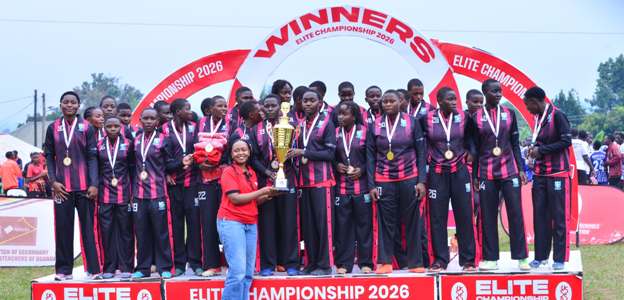In Ugandan football, there are nights when the script flips, when rivals become allies and the game is no longer just about goals but about power. Tuesday was one of those nights. At Serena Hotel, FUFA president Moses Magogo waited with a plan. But two men, Hajji Omar Mandela of SC Villa and Lawrence Mulindwa of Vipers SC, rewrote it before it began.
Invited for a private meeting by FUFA CEO Edigar Watson Ssuubi to meet fufa president Moses Magogo to iron out reforms to the Uganda Premier League (UPL), the pair declined with words that cut sharper than silence: “We will only discuss reforms in the presence of all 16 UPL clubs.”
It was more than a refusal. It was a statement. Two giants, long defined by rivalry, stood shoulder to shoulder, sending FUFA a message: the league’s future cannot be stitched together behind closed doors.
Unity Over Division
Mandela, the steady hand of tradition at Villa, and Mulindwa, the modern power broker at Vipers, represent different worlds of Ugandan football. But on this night, they represented something larger, an insistence that reforms must be inclusive, collective, and transparent.
“Reforms cannot be discussed in isolation,” a Villa official told reporters. “Clubs deserve equal say, no one should meet FUFA above the rest.”
Their refusal resonated. Hours before, 11 clubs convened at FUFA House in Mengo, taken through the reforms and money structures by Magogo himself . Eleven clubs concurred with his message on presentation. This means that as more divisions emerge, football’s future would be at crossroads.
The Billions in the Background
And yet, behind this drama, money moved. FUFA announced a record Shs3.4 billion annual investment in the UPL, up from Shs2.5 billion.
The funding, drawn from a Shs17B pool of government, CAF, FIFA, and sponsors, promised to cover prize money, insurance, locker-room bonuses, cash support, and expanded marketing. On paper, it was historic.
But for Mandela and Mulindwa, this was the backdrop, not the headline. Both men know Ugandan football has seen big pledges before. What matters now is who controls the architecture of reform, the federation or the clubs.
A Test of Power
The FUFA Club Development Reforms programme proposes changes to scheduling, gate collections and distribution, prize distribution, and broadcasting rights. FUFA sells them as “ingredients for modernisation.” Critics see centralisation, power pulled tighter into Mengo’s hands.
By rejecting Magogo’s one-on-one invitation organized by FUFA CEO Edigar Watson Ssuubi, Mandela and Mulindwa shifted the balance. They forced FUFA into the open, insisting on collective accountability.
“Money is good,” a senior club executive reflected, “but trust and transparency are better. Mandela and Mulindwa have reminded us of that.”
What Lies Ahead
All 16 clubs will have to meet , expected to issue a joint position on the reforms before facing the media. Insiders say it could be the most unified stand in UPL history.
For Magogo, the billions pledged may not be enough to silence dissent. For Ugandan football, the choice is stark: build consensus or deepen division.
The Bigger Picture
Strip away the figures and the politics, and what remains are two men, Mandela and Mulindwa, who for a night set aside rivalry to protect principle. Their defiance was not merely about money or structure, but about respect, voice, and the soul of the league.
And so Ugandan football finds itself at a threshold. If Mandela and Mulindwa’s stand sparks true unity, the league may finally step into an era of professionalism as clubs begin to decide what’s good for them when it comes to policies and implementation. If not, the fault lines between federation and clubs may widen…
[15:57, 27/08/2025] Kizito Nganda Zaabu Somali Land: Tesla’s Costly Gamble: Turning Down $60 Million Deal, Facing $243 Million Verdict
Tesla’s latest courtroom drama has once again thrown the spotlight on the risks of its Autopilot technology , and the financial bets it is willing to take.
Court filings in Miami have revealed that Elon Musk’s electric car company rejected a $60 million settlement offer earlier this year in a lawsuit tied to a fatal 2019 crash. Instead of closing the case quietly, Tesla went to trial , and ended up on the receiving end of a staggering $243 million jury verdict.
The case stems from a night in April 2019 when a Model S, running on Autopilot driver-assistance software, struck a parked Chevrolet Tahoe on a Florida roadside. The impact killed Naibel Benavides Leon and left her bo…

